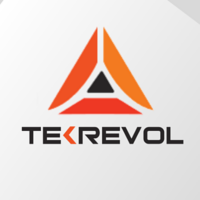Key Considerations for Informed Decision-Making to Evaluating a Vendor for IT Industry:
Written for the client guidance by Siachen editors to help the potential customers of this business in evaluating and zeroing down on the best provider to place the order.
Introduction:
In the rapidly evolving landscape of technology and digital services, choosing the right vendor is a critical decision for businesses and individuals alike. The following comprehensive guide aims to provide customers with a detailed framework for evaluating potential vendors offering a range of services, including web designing, web development, e-commerce development, web portal development, software development, mobile app development, digital marketing, and web domain & hosting. By considering the key factors outlined in each category, customers can make informed decisions, ensuring that their chosen vendor aligns seamlessly with their requirements and expectations.
I. Web Designing: Crafting Digital First Impressions
1. Portfolio Assessment
Before finalizing a web designing vendor, thoroughly examine their portfolio. Evaluate the diversity of their work, paying attention to design aesthetics, functionality, and user experience. A robust portfolio is indicative of a vendor's expertise and adaptability.
2. Responsive Design Capability
In an era dominated by various devices, responsive design is crucial. Ensure the vendor has experience in creating websites that seamlessly adapt to different screen sizes, offering a consistent and user-friendly experience across platforms.
3. User-Centric Approach
A customer-centric web design is essential for driving engagement. Assess the vendor's approach to user experience (UX) and user interface (UI) design. Look for evidence of user research, usability testing, and a commitment to creating intuitive and accessible interfaces.
II. Web Development: Building Robust Online Foundations
1. Technology Stack Proficiency
Examine the vendor's proficiency in various web development technologies. Ensure they are up-to-date with the latest frameworks and languages, allowing for the development of scalable and future-ready websites.
2. Scalability and Flexibility
A website should be scalable to accommodate future growth. Evaluate the vendor's ability to create flexible architectures that can evolve with your business needs. Scalability ensures that your website remains efficient and effective as your business expands.
3. Testing and Quality Assurance
Reliable web development involves rigorous testing and quality assurance procedures. Inquire about the vendor's testing methodologies, including unit testing, integration testing, and user acceptance testing. A commitment to quality ensures a robust and error-free final product.
III. E-Commerce Development: Powering Online Business Success
1. Security Measures
Security is paramount for e-commerce websites handling sensitive customer information. Assess the vendor's approach to data protection, encryption, and compliance with industry standards. A secure e-commerce platform builds trust among customers.
2. Payment Gateway Integration
Smooth transactions are the backbone of e-commerce. Ensure the vendor has expertise in integrating reliable payment gateways, offering customers a seamless and secure purchasing experience.
3. Inventory Management Systems
Efficient inventory management is crucial for e-commerce success. Evaluate the vendor's ability to implement robust inventory management systems, ensuring accurate tracking and timely updates.
IV. Web Portal Development: Streamlining Information Access
1. Customization Capabilities
Every business has unique requirements. Assess the vendor's ability to create customized web portals that align with your specific needs. Customization ensures that the portal caters precisely to your business processes.
2. User Authentication and Authorization
Security is paramount in web portal development. Ensure the vendor implements robust user authentication and authorization mechanisms, safeguarding sensitive information and allowing controlled access to different user roles.
3. Scalability for Growing Needs
Consider the scalability of the web portal. It should be designed to accommodate the growth of data and users. A scalable portal ensures that it remains efficient and effective as your business expands.
V. Software Development: Tailored Solutions for Unique Needs
1. Needs Assessment and Requirement Analysis
A successful software development project begins with a comprehensive needs assessment. Evaluate the vendor's approach to understanding your requirements, ensuring that the proposed software solution aligns perfectly with your business objectives.
2. Agile Development Methodologies
Agile methodologies ensure flexibility and adaptability during the development process. Assess whether the vendor employs agile practices, allowing for iterative development, continuous feedback, and efficient problem-solving.
3. Post-Implementation Support
Software solutions require ongoing support. Inquire about the vendor's post-implementation support services, including maintenance, updates, and troubleshooting. A reliable support system ensures the longevity and efficiency of the software.
VI. Mobile App Development: Navigating the Mobile Frontier
1. Platform Expertise
Mobile apps often cater to different platforms. Ensure the vendor has expertise in developing for both iOS and Android platforms. Platform diversity allows for broader audience reach.
2. User Experience Design
User experience is paramount in mobile app development. Assess the vendor's approach to UX design, including intuitive navigation, responsive layouts, and user-friendly interfaces. A positive user experience enhances app engagement.
3. Performance Optimization
Mobile apps should be optimized for performance. Inquire about the vendor's strategies for optimizing app speed, reducing load times, and ensuring smooth functionality across various devices.
VII. Digital Marketing: Amplifying Online Presence
1. Comprehensive Strategy
Digital marketing encompasses various channels. Evaluate the vendor's ability to formulate a comprehensive digital marketing strategy, including SEO, social media, content marketing, and paid advertising. A holistic approach ensures a well-rounded online presence.
2. Analytics and Reporting
Data-driven decisions are vital in digital marketing. Assess the vendor's proficiency in utilizing analytics tools for tracking performance, monitoring campaign success, and providing insightful reports. Data-driven insights enable continuous improvement.
3. Target Audience Understanding
Successful digital marketing hinges on understanding the target audience. Inquire about the vendor's approach to audience analysis and segmentation. Tailored campaigns resonate better with specific audience segments.
VIII. Web Domain & Hosting: A Solid Foundation for Online Presence
1. Reliability and Uptime Guarantee
Reliable web domain and hosting services are foundational. Assess the vendor's track record in providing reliable services with minimal downtime. An uptime guarantee ensures that your website remains accessible to users.
2. Scalability for Growing Traffic
Consider the scalability of hosting services. As your website traffic grows, the hosting infrastructure should be capable of scaling seamlessly. Scalability ensures that your website remains responsive even during periods of increased traffic.
3. Customer Support and Service Level Agreements
Inquire about the vendor's customer support services and service level agreements (SLAs). A responsive support team and clear SLAs ensure prompt issue resolution and adherence to agreed-upon service standards.
Conclusion:
In the digital age, choosing a vendor for web-related products and services is a crucial decision. By carefully evaluating potential vendors across web designing, web development, e-commerce development, web portal development, software development, mobile app development, digital marketing, and web domain & hosting, customers can make informed decisions that align with their unique needs and expectations. Thorough assessments of portfolios, capabilities, security measures, scalability, and customer support contribute to a successful partnership and the realization of digital goals.


























